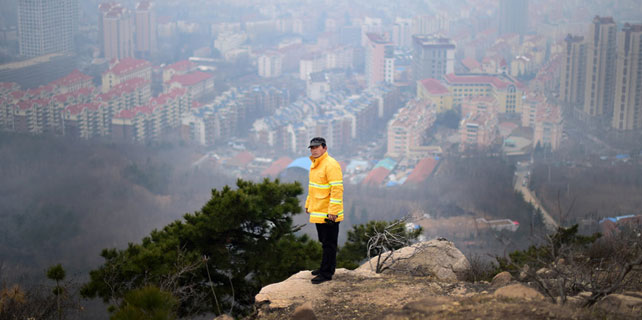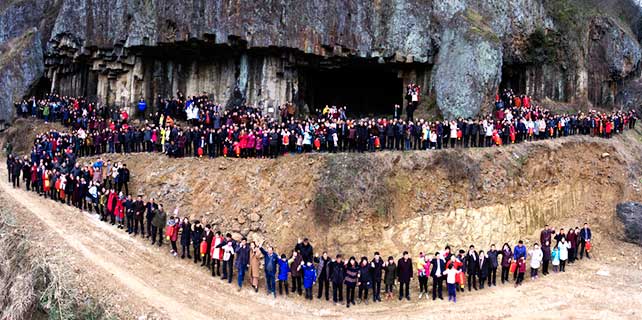Golden chance to revive Northeast China
 |
|
MA XUEJING/CHINA DAILY |
Northeast China, once the industrial engine of New China, is increasingly becoming a rust belt, as the regional economy has lost its traditional advantages.
As part of the country's efforts to revitalize the region, Northeast China's natural resources of ice and snow should be further exploited.
China's three northeastern provinces, Heilongjiang, Liaoning and Jilin, have the most abundant snow and ice resources in the country in terms of snow volume and quality. The long snow season is a unique advantage for local development. For example, in Heilongjiang province, the snow season usually lasts about 120 days in the mountainous areas.
Rebooting the local economy by utilizing its natural winter conditions would be an effective means to fuel local economic growth and provide more job opportunities.
However, more needs to be done to further develop the region's ice and snow economy.
First, the development of ice and snow tourism should be further enhanced. Snow and ice tourism has begun to be developed in the three northeastern provinces. For example, Harbin's Ice and Snow World, covering an area of 800,000 square meters, has become the world's largest outdoor ice theme park with an annual operating time of 70 days, and it now receives over 1 million visitors, and has an annual turnover of more than 300 million yuan ($45 million). In addition, Northeast China has other well-known ice and snow tourism sites such as Yabuli Ski Resort in Heilongjiang province, Vanke Songhua Lake Ski resort in Jilin province, and North Lake Wetland Ice and Snow Paradise in Liaoning province.
But there is still much room for development of snow and ice tourism in the three northeastern provinces. For example, the Harbin Ice and Snow World is generally closed in early March due to melting snow and ice.
In the warmer seasons, however, an underground ice and snow world could be an option to extend the ice tourism season. And farmers nearby need to be incorporated more into the tourism business, for instance, they can sell more local agricultural products to tourists.
Second, the ice and snow equipment manufacturing industry needs developing. At present most of the winter sports goods are not produced in the three northeastern provinces. The three northeastern provinces should design and produce more high-quality skiing equipment and ice sports machines.
Furthermore, by encouraging the ice and snow economy, the three northeastern provinces can also boost other related sectors, such as winter clothing rental, hotels, restaurants, communications and other industries.
Third, the local governments need to do more to enrich the local ice and snow culture, by hosting festivals and producing movies and television dramas featuring the local customs, to raise awareness of it. There are many measures that can be taken to promote the region's ice and snow culture. For example, using local legends as the basis for ice spectacles and establishing ice and snow museums.
More important, the three provinces should strive to make local ice and snow sports more appealing not only to local residents but people across the country and overseas. The 2022 Winter Olympics is an opportunity to make winter sports more well-known and more popular, and it is also a golden chance for Northeast China to stimulate its ice and snow industry, one it should not waste.
Last but by no means least, a healthy tourism environment that maintains fair market order, and eliminates fake and shoddy goods, should be established. This also requires broadening the financing channels to meet the development needs of the region's ice and snow industry, such as encouraging private and foreign investment.
The author is the dean of the school of finance at Harbin University of Commerce.









